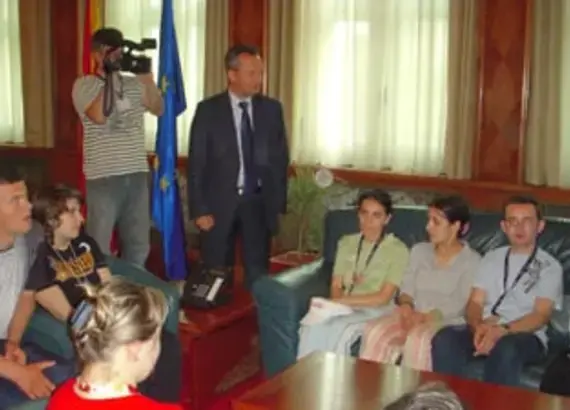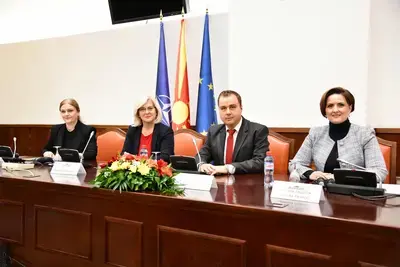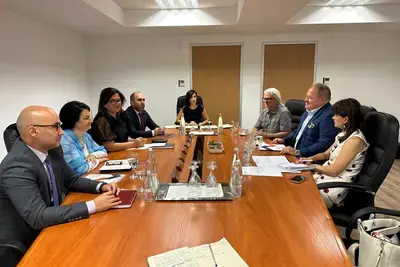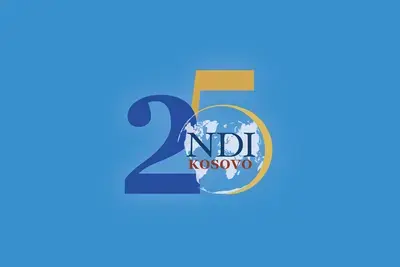
Success Story
Persistence by Rights Group in Macedonia Leads to a Significant Win for Citizens with Disabilities
It took many years, but disabled citizens in Macedonia now legally have the right to equal treatment under the law.
The change came late last year when the Assembly of the Republic of Macedonia ratified the U.N. Convention for the Rights of Persons with Disabilities, a set of government commitments to give full rights to disabled persons rather than treating them as objects of charity and institutionalization. Macedonia’s ratification of the convention resulted from a long-term advocacy campaign led by a disability rights group that overcame considerable political and institutional obstacles to see its goal realized.
Historically, Macedonia’s approach to disability emphasized segregation for disabled children, menial employment for disabled adults, and carried few if any policy tools to integrate disabled people into mainstream society. Left with few options and often confronting social stigma, many families institutionalized disabled relatives. Ratification of the U.N. convention means, in broad terms, a start to correcting past wrongs and to the meaningful integration of disabled citizens into the country’s social and economic life.
Heading the effort for ratification was the Republic Center for the Support of Persons with Intellectual Disability, or Poraka, a nationwide, nongovernmental organization representing the rights and interests of more than 20,000 Macedonian citizens with intellectual disabilities. It engaged members of parliament and the public in a wide-reaching campaign that included lobbying party leaders, publishing opinion pieces and organizing international conferences to garner the parliamentary support needed to ratify the convention, which the government had signed in 2007.
That effort began in earnest in 2009, when Poraka decided it needed help navigating the political and legislative process in Macedonia and approached NDI for assistance. The Institute was involved in a multi-year program funded by the National Endowment for Democracy to support legislative advocacy efforts by Macedonian civic groups. With NDI training on public outreach, media relations, and policy assessments, Poraka developed a legislative strategy and public awareness campaign that eventually led to ratification. Along the way, the group built an advocacy model that could be used by other civic activists in the country.
“This campaign was a long time coming and we are so delighted that our hard work paid off,” said Vasilka Dimovska, program manager at Poraka. “The experience really transformed the way we as an organization think about legislative advocacy and our role in the democratic process. We will apply the lessons learned as we begin to monitor how the convention is carried out.”
Poraka’s campaign began with an opinion column in one of the biggest dailies, Dnevnik, arguing for immediate ratification. At the same time, Poraka designed and produced campaign materials, posters, leaflets and an informational brochure under the banner: “So that Rights Become a Reality!”
Poraka leaders went on the road to brief chapters around the country on the initiative and to strategize on how to lobby members of parliament in their home districts. Poraka representatives met with MPs across the country in 20 constituency offices that NDI had helped to develop five years ago. They even lobbied Assembly Speaker Trajko Veljanoski during a tour of the legislature.
Despite Poraka’s best efforts, politicians missed promised deadlines for ratification, including the 2010 International Day of Persons with Disabilities.
But disappointment bred determination to put more pressure on the government. A political crisis last year that led to early elections in June gave Poraka another opportunity--this time in the heat of the election campaign.
Assisted by NDI, Poraka designed an election strategy that involved gathering written pledges from leaders of the main political parties to ratify the U.N. Convention within 100 days of the new parliament convening. In two weeks, Poraka secured pledges from 10 parties. The campaign was widely covered by the national press; Poraka representatives appeared on TV, radio and in national newspapers almost every day during the campaign.
While success did not come within 100 days, parliament did ratify the convention, by unanimous vote, this past December – in time to mark the 2011 International Day of Persons with Disabilities.
Ten days later, PORAKA and NDI organized a roundtable on the ratification and the related obligations for the Macedonia government. The event gathered more than 60 participants from organizations and groups active in the disability equality movement, and was opened by the Minister for Labor and Social Policy.
At the celebratory gathering, the discussion turned to the challenge of ensuring that words on paper in 2011 lead to real improvements in people’s lives in 2012.
Related
Published on March 27, 2012




